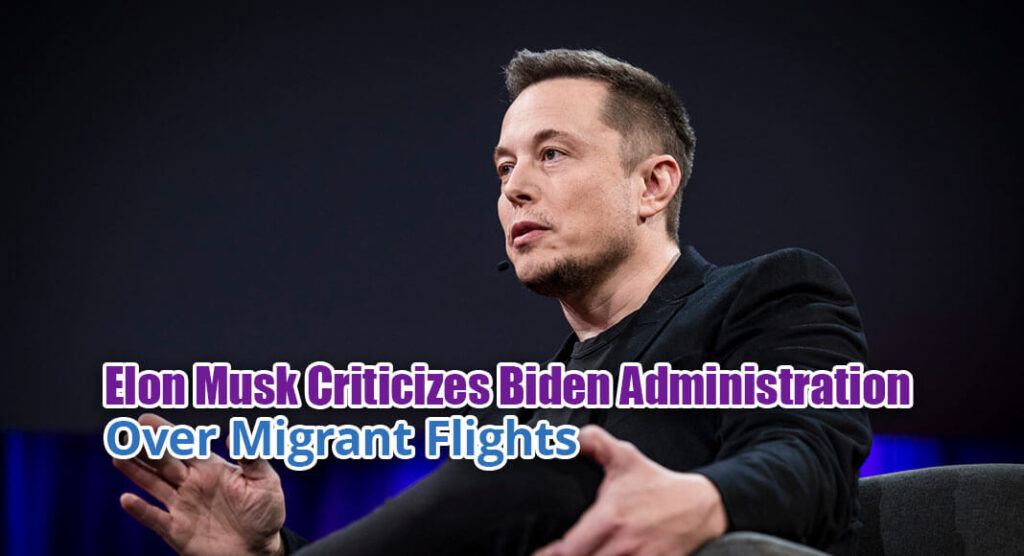
Texas Border Business
Staff
In a recent uproar on his social media platform X, Elon Musk, the visionary behind Tesla, publicly criticized the Biden administration for their handling of immigration policies, specifically addressing the covert transportation of migrants into the United States. Musk’s condemnation came on the heels of revelations that the administration had facilitated the entry of approximately 320,000 migrants into the country without comprehensive vetting, actions Musk deems as potentially compromising national security and likening the scenario to an “importation of voters.”
This controversy surfaced following a disclosure related to a secretive Biden administration program, under which 320,000 migrants were flown into the U.S. The specifics of the migrants’ origins and their destinations remain undisclosed, raising alarms over transparency and security protocols. Representatives from the immigration agencies have argued that revealing these details could inadvertently expose national security vulnerabilities.
The situation gains complexity against the backdrop of last year’s unprecedented migrant influx at the southern border, paralleled by these covert operations to transport migrants via air, utilizing cell phone applications to facilitate their undetected arrival. This method of entry bypasses legal channels, allowing migrants without legal rights to enter the U.S., stirring a significant controversy reminiscent of a 2022 initiative that employed taxpayer funds to redistribute migrants internally via overnight flights.
Details from a Freedom of Information lawsuit, spearheaded by journalist Todd Bensman and the Center for Immigration Studies, uncovered the administration’s authorization of secretive flights transporting illegal immigrants to at least 43 different American airports throughout 2023. This revelation is part of a larger strategy associated with expanding the CBP One app, initiated at the start of last year, enabling migrants to apply for asylum remotely.
The administration’s reluctance to disclose the airports involved, citing a ‘law enforcement exception,’ has fueled further debate. The Center for Immigration Studies’ lawsuit has brought concerns over public safety and the potential for ‘bad actors’ to exploit operational vulnerabilities, suggesting a reevaluation of the program’s legality and ethical grounding.
Critics argue that this lack of transparency not only obscures the program’s scope and implications but also raises questions about the efficiency and integrity of the U.S. immigration system. The administration’s approach, particularly the non-disclosure of departure airports and the nationalities eligible for CBP One applications, remains a contentious issue, drawing parallels with past security oversights that have had dire consequences on national security.
Elon Musk’s comments reflect a growing concern over the implications of such immigration policies for national security. As the debate unfolds, the administration faces mounting pressure to address these criticisms transparently, ensuring that immigration policies bolster rather than compromise the nation’s safety and integrity.













